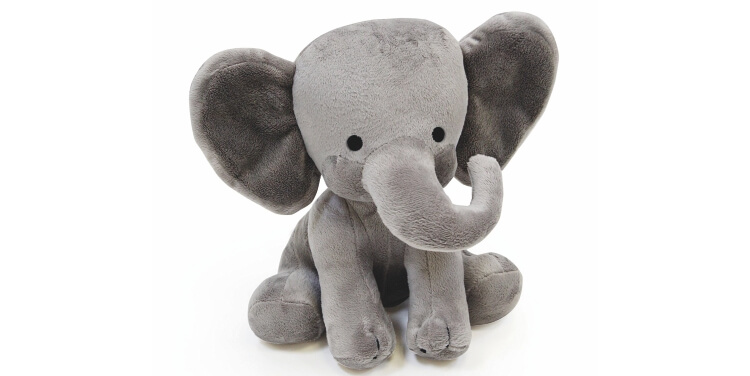Would you like to know what could be called the first New Testament image of a Christian leader?
This unexpected image comes from Paul’s first letter to the Thessalonians. Since a majority of NT scholars consider 1 Thessalonians as the first Christian document (written around AD 50), one could regard this beautiful image as the first image of ministry in the New Testament.
In 1 Thessalonians 2:5–7a, Paul writes:
You know we never used flattery, nor did we put on a mask to cover up greed—God is our witness. We were not looking for praise from people, not from you or anyone else, even though as apostles of Christ we could have asserted our prerogatives. Instead, we were like young children among you (NIV 2011).
Apostles as children? Why so? By using “infants/children,” Paul effectively contrasts the motives behind their mission as being innocent, vulnerable, and unselfish—as opposed to the deceit and manipulation mentioned in vv. 5–6. The members of the Pauline team were harmless, light-weight infants rather than demanding, heavy-weight apostles.
At this point some readers may face a problem because their translation of the Bible (English or a vernacular version) would not mention “young children.” In which case, their version will read something like, “We were gentle among you.” Why this difference? And how do we handle these different readings?
Paul’s startling image of the apostles as innocent children should come as no surprise. Jesus, in no uncertain terms, declared that unless His disciples, and those who sought to be leaders, became like little children, they would not amount to much in God’s kingdom
The differing versions of 1 Thessalonians 2:7a translate one of two Greek words, because two variants exist in the Greek manuscripts. One reads “gentle” and the other “children.” Versions such as the KJV, NRSV, and even a previous version of NIV (1984) have chosen to translate the Greek word ēpioi (meaning “gentle ones”), connecting that to the text of 2:7b—“gentle … as a mother.” Other versions, like the NIV 2011, CEV, and NLT translate the word nēpioi (meaning children/infants). Some versions, like the ESV, mention the variant reading in a footnote. These two words, which in the Greek are different by only one letter (nu), have such different meanings.
So which of these two words has a greater probability of being the word Paul originally used—“gentle ones” or “children”? I believe good reasons exist to conclude that in 1 Thessalonians 2:7a Paul used the word nēpioi (children) to refer to the missionary team that founded the church in Thessalonica. How can we say so?
First, the variant nēpioi (children) has the better manuscript support: the earliest manuscript (p65) with this reading comes from the third century AD. Compare this with the earliest manuscript with the reading ēpioi (gentle), which comes from the fifth century AD.
Second, the translation of “infants” or “children” perfectly fits the immediate context of Paul’s words in 1 Thessalonians 2:1–12. It appears that some people in Thessalonica (probably outsiders to the church) had questioned Paul’s motives and integrity. They apparently accused Paul and his companions as being those bent upon exploiting the Thessalonians, especially financially. This may have been reported to Paul by Timothy (1 Thess. 3:6).
In response to these vicious insinuations, Paul reminds the Thessalonian church that both they and God knew the truth of the matter. Paul and his companions had labored hard to support themselves and did not put any financial burden on the new believers (1 Thess. 2:9). They did not don a mask to cover up greed—like some others who preached “for the sake of dishonest gain” (Titus 1:11). Rather, their motives were pure—and Paul appeals to the personal knowledge of the Thessalonians (see the “you know” statements in 2:1, 2, 5, 9, and 11). The apostles were like sacrificial and loving parents to them (2:7b, 11).
One may wonder whether “children/infants” carries a pejorative sense. Not necessarily. Paul uses words with varied connotations in diverse contexts. For example, in 1 Corinthians, Paul first uses the image of “infants” (nēpioi) negatively in 3:1-2. (“You are worldly, mere infants in Christ.”) Later in 13:11, he uses the same noun in a neutral sense. (“When I was a child, I talked like a child.”). However, in 14:20, he speaks of being an infant in a positive sense: “Brothers and sisters, stop thinking like children [paidia]. In regard to evil be infants, [here Paul employs the verb for being infants (nēpiazō)], but in your thinking be adults.”
So, in the same letter, Paul draws on the same image of children/infants but in three differing ways. Additionally, 1 Corinthians 14:20b sheds further light on Paul’s meaning in 1 Thessalonians 2:7a. The apostles were just like innocent babies! Later in the following passage (2:7b-12) Paul also uses the images of a nursing mother and an encouraging father to denote the ministry of the apostolic band.
Paul’s startling image of the apostles as innocent children should come as no surprise. Jesus, in no uncertain terms, declared that unless His disciples, and those who sought to be leaders, became like little children, they would not amount to much in God’s kingdom.
“Truly I tell you, unless you change and become like little children, you will never enter the kingdom of heaven. Therefore, whoever takes a humble place—becoming like this child—is the greatest in the kingdom of heaven” (Matt 18:3-4; Mark 9:33-37; Luke 9:46-48).
Coming back to 1 Thessalonians, Paul and his associates claim that they had acted as blameless children in their relationship to the Thessalonian believers. They were pure, innocent, and Christ-like. Truly, this serves as the fountainhead of other virtues—the indispensable characteristic of a Christ-like leader.
Let’s all grow up and become children!






